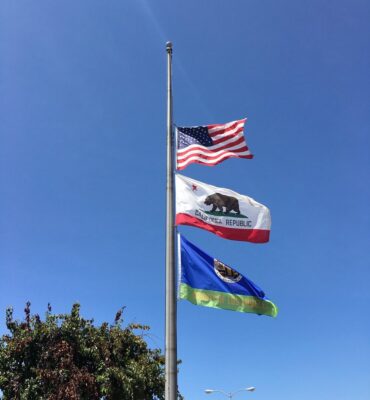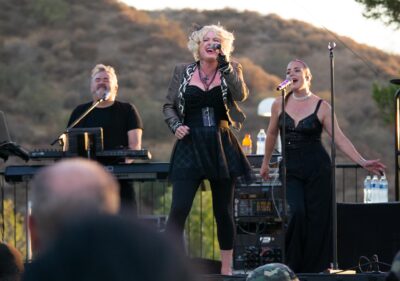Hardly a day goes by where I don’t think of my dad. One of the great gifts of my lifetime was being able to spend time with him his final years, to, in a pittance, repay him for watching over me. Pops was that pure definition of a hero — “doomed to failure, he tries anyway.”
I wonder how Arthur Schopenhauer would have viewed Father’s Day. The 19th century German philosopher with the madman grimace and wild, flyaway Muppet hair wrote at length about the sorry state of men, how wading through the thick obligations of wives and children, a man becomes stooped and rarely gets to become who he was supposed to be.
Schopenhauer’s views were along the lines of Henry David Thoreau’s famous quote: “Most men live lives of quiet desperation.”
Amen. Boy howdy. We are not alone. Most women never fully become themselves, either.
I suspect only in his last 15 years or so my father flirted with Life’s elusive, moving target — happiness. My mom suffered severe mental illness all her life and dear, suffering soul, she made all around her pay. It was as if a 50-ton tombstone had been lifted from his chest when she made her transition.
I plotted tirelessly to kidnap Dad for roadtrips to beach or mountains. Stubborn so-&-so, Pops felt there couldn’t be any place on Earth more beautiful than Santa Clarita’s crown jewels of Hart Park or Placerita Canyon. Why would anyone want to drive five hours just to see the same tree?
As if I were Zorro or Captain Blood, I’d narrow my eyes and answer: “Adventure …”
I packed his suitcase right in front of him, threw it and him laughing and sputtering in the truck. Off we went to the High Sierras. We pulled into Yosemite’s back country and he bounded out of the truck. I shall never forget my father’s reaction. As if filled with the Holy Spirit, Dad held his arms wide out, filled his lungs with mountain air, closed his eyes and pirouetted in a slow circle. He said, with more passion I can ever recall him allowing, “It’s all so — beautiful. It makes you just want to reach out and hug it all …”
Had I not had such a father, who would have taught me that?
On the lonely coast of Northern California, Death Valley’s timeless dry loneliness or just a walk up our Iron Canyon road at twilight, Dad would often stop to regard a lone flower. My father was a decorated combat vet of World War II. An enigma I still can’t fathom, this kind soul shot men and killed them. And yet, a solitary bud or drop of dew on a new leaf would bring such a sweet smile of wonder to him. That gift of divine connection? It belongs to me now. I pass it along to my daughter. Sometimes, she’s 3,000 miles away and I’ll send a video or cellphone photo of a babbling brook in upper Castaic or a great and ancient tree bested by the wind. Sometimes, there’s beauty in the fallen.
I learned to love Nature from my father. And horses. Few know this, but Dad was an accomplished handicapper and made a nice side living betting the ponies. I should add Del Mar, Caliente and Santa Anita to my school bio on Facebook. He was one of the most disciplined humans and, poor chap, failed miserably trying to teach me his system. I have no head for math of cipherin’. I love horses, but only to ride them, not bust my noodle predicting what order they’ll end up after galloping six furlongs.
Which leads me back to Schopenhauer and Thoreau. Was my father happy? It was so unfair. Most of his life, he was more — haunted. War and marriage. They change men. Like many dads, he found both his happiness and great reservoir for worry in his child — me. And why not?
Dad’s own childhood was rags and abject poverty. In his 80s when he moved in with me, he laughed and wiggled in revulsion, recalling one cold winter’s stew, having to eat, not metaphorically, but actually — crow. “It was mighty bitter, son.” Dad never left combat. He battled through the endless trials, humiliation and bottomless insanity of my mom.
Another question. You can flirt with sainthood, but can you find happiness wading through years of erosion of the soul? Heroic? Sure. Happy? Not so much.
Was Schopenhauer right? Men — fathers — often lose sight of their dreams in order to put bread on the table, a roof over small heads, cloaks on tiny shoulders. On the bright side, I got to show my dad Yosemite, and, on lesser days, the Waterfall Trail at Placerita Canyon or a quiet late-night pinocle game at the dining room table. Even better, I get to share his story, his wisdom, his life’s lessons with my daughter. Who knows. In this timeless comedy of civilization, 50 years hence when my girl’s my age, a light might go off in epiphany. She’ll smile and realize, “Hey! Dad was right!”
A dozen years. It can’t be that long ago. That’s when he made his transition. Dad didn’t believe in God. That certainly was up to him. But, I strongly suspect God believes in my Dad, elsewise, why would He have made such a kind, fine and heroic man?
Happy Father’s Day, Pops. Hope you have a deluxe box seat on that Finish Line In The Sky. Thank you for all the gifts, the cheerings-on, the love, support, for being in my corner through thick and thin. Thank you for sharing your life and stories, for your strength and sacrifice where lesser men would have fled. I so hope you’re — happy … I hope that grumpy old Artie Schopenhauer is, too.
With more than 11,000 columns and 100-plus awards (119!), Santa Clarita’s John Boston is the most prolific humorist/satirist in world history. Visit his bookstore online at johnlovesamerica.com/bookstore and support American literature by buying stuff …










